Framing the Other: Islam, Secular Violence, and Post-Secular Resistance
Sigmund Freud, the foundational figure of psychoanalytic theory and a pivotal contributor to atheistic thought and the sexual revolution, offers a symbolic myth of a primal tribe and its authoritative patriarch. In this myth, divorced from any divine context, the father exerts prohibitive control over his sons’ desires, particularly their sexual urges. Eventually, the sons commit collective parricide, a violent act that grants them access to formerly forbidden pleasures but also engenders overwhelming guilt. This guilt gives rise to new taboos, reconfiguring the moral order, especially around incest. Freud theorized that religious rituals particularly sacrificial rites emerged from the psychological imprint of this slain father.
What relevance does this narrative hold for secularism and its post-secular critiques? The murdered father reemerges as a symbolic structure of prohibition, much like the secular declaration, “God is dead, and we have killed Him.” Despite this proclamation, the divine returns as an unconscious force, akin to the repressed father figure. Carl Schmitt, in his exploration of political theology, similarly argues that secular modernity retains theological residues: modern sovereignty, for instance, is a secularized version of divine omnipotence. Thus, the supposedly rational and secular public sphere continues to be haunted by a theological unconscious.
Rather than eliminating religion, secularism internalized and reconstituted it. Thinkers like Lacan and Freud illustrate that the divine persists within the unconscious realm. Post-secular theorists reveal how religious presence continues globally embedded in social, psychological, and epistemological structures even in a purportedly secular age.
Islam as the “New Other” in the Post-Cold War Era
Following the Cold War and the collapse of communism, Islam was increasingly positioned as the new ideological adversary of the West. The decline of Marxist ideology created a vacuum that was quickly filled by the construction of Islam as the civilizational “other.”
Military interventions in Iraq and Afghanistan, framed as efforts to “democratize” Islamic societies, were underpinned by this ideological antagonism. In this context, concepts like “moderate Islam” were strategically manufactured to align with liberal secular norms. This effort, echoing the colonial “white man’s burden,” rebranded the imperial mission through the vocabulary of democracy and modernization. Islam had to be reshaped, filtered, and domesticated to fit secular expectations.
Resistance movements, particularly since the 1970s, have reasserted religion’s public and political roles, challenging secularist assumptions. The resurgence of religious consciousness and activism unsettled the West, giving rise to Islamophobia as a postcolonial response. In Huntington’s “Clash of Civilizations” thesis, Islam was identified as the primary post-ideological threat. After 9/11, these fears were codified into law and policy across Western democracies.
In response, post-secularism emerged as a theoretical intervention—one that critically revisits and interrogates the secular framing of Islam.
Islam and Secularism: The Genealogical Debate
The encounter between Islam and secularism has generated one of the most persistent intellectual and political debates of the modern era. Far from being a neutral framework of governance or rationality, secularism emerged from the historical crises of Western Christendom and carries with it a specific theological and epistemological inheritance. Talal Asad, in Genealogies of Religion and Formations of the Secular, demonstrates that secularism does not merely separate religion from politics, it redefines religion itself through modern power and discourse. This redefinition privileges a Protestant-like notion of private belief and marginalizes Islamic traditions that integrate ethical, legal, and political dimensions into a unified moral vision. Thus, the secular critique of Islam is not a confrontation between faith and reason, but between two competing moral epistemologies, one born from European historicity and the other rooted in divine law and prophetic authority.
In this broader debate, scholars like Sherman Jackson and Wael Hallaq further reveal how secular modernity operates as a civilizational and racial project. Jackson emphasizes that secularism’s call for “neutrality” conceals a cultural demand for Muslims to internalize Western conceptions of freedom and morality. Similarly, Hallaq’s The Impossible State exposes the structural incompatibility between the Islamic moral order and the sovereign state form, arguing that the modern state’s metaphysics of power is anthropocentric and therefore incommensurable with a God-centered epistemology. These insights form the foundation for post-secular thought, which seeks not merely coexistence but epistemic rebalancing, a move from defensive apologetics to the recognition of Islam as a source of critique and moral rationality within modernity itself.
Post-Secularism and Reimagining Religion
Jürgen Habermas introduced the term “post-secular” in his 2001 lecture Faith and Knowledge, calling for a reconsideration of secularism’s relationship with religion. Rather than advocating for the dominance of either domain, post-secularism proposes a dialogical engagement that disrupts inherited binaries.
For thinkers like Anthony J. Cascardi, post-secularism arises from the epistemological limitations of secular modernity—especially its inability to adequately understand or engage religious life. It questions the genealogical foundations of secularism, particularly its presumed neutrality and universality.
Islam, in this context, has long been situated within a hierarchical framework in Europe. The central question is not whether Europe can accept Muslims, but whether Muslims can assimilate into a secular European identity. This asymmetry reveals the persistence of Eurocentric supremacy masked as universal secularism—an ideological stance that post-secular critiques aim to dismantle.
Violence, Secularism, and the Myth of Religious Irrationality
Post-secular critiques challenge secular narratives that portray religion—especially Islam—as intrinsically violent, irrational, and regressive. This narrative deflects attention from the historical violence perpetrated by secular ideologies themselves. From Nazism and fascism to colonialism and Stalinism, some of the most devastating episodes of modern history have emerged from secular political projects.
William Cavanaugh argues that the category of “religious violence” is itself a product of secular ideology. In reality, violence is often a confluence of secular and religious motivations, and isolating religion as the primary cause is both reductive and politically expedient.
Furthermore, secular modernity selectively applies the lens of critique to Islam. Reformist Muslim thinkers—often backed by Western institutions—internalize colonial epistemologies and redefine Islam in opposition to “violent” or “irrational” interpretations. This process seeks to secularize and neutralize Islam, eroding its traditional foundations. Post-secular theory critiques this ideological assimilation while emphasizing the necessity of genuine political agency for Islamic communities.
Rethinking Critique: Islam and the Possibility of Internal Rationality
Secularism often claims a monopoly over critique and rationality, dismissing religion as pre-critical or anti-intellectual. However, Irfan Ahmad’s Religion as Critique dismantles this binary by highlighting Islam’s own rich tradition of internal critique through theological, ethical, and legal frameworks such as ijtihad.
Ahmad argues that Islamic jurisprudence evolves through debate, interpretation, and reasoned deliberation. The assumption that Islam is uncritical stems from colonial systems of knowledge that suppressed indigenous intellectual traditions.
Furthermore, the Prophet Muhammad himself exemplified both internal and external critique of his society. In this light, post-secularism retrieves and reaffirms the intellectual agency within Islamic traditions, pushing back against secularism’s claim to exclusive ownership of rational critique.
Gender, Secularism, and the Weaponization of Feminism
Following 9/11, gender discourse became a key site for critiquing Islam. Secular states, especially in the West, began framing Islam as inherently misogynistic and hostile to women’s rights. However, secular modernity’s own history with gender justice is far from exemplary. The French Revolution, a foundational moment in secular modernity, excluded women from its democratic promises. Figures like Olympe de Gouges, who demanded equal rights for women, were marginalized and suppressed.
Feminist movements have long had to struggle within secular frameworks for basic recognition and rights. The selective invocation of gender equality in critiques of Islam thus reveals a double standard. In practice, gender equality has been instrumentalized as a negative definition: it is everything Islam supposedly is not.
Conclusion: Toward a Post-Secular Epistemology
Secularism has transformed its internal struggles—such as the gender question—into weapons of critique against Islam. What was once a self-directed reckoning has been repurposed into an ideological assault on the religious “other.”
This article contends that the secular-Islam relationship is fundamentally structured by power and ideological antagonism. Post-secularism, by deconstructing the myths of secular modernity, opens new epistemological and political possibilities for rethinking Islam—not as a threat or anomaly, but as a legitimate site of moral reasoning, critique, and social justice.
Recognizing this is not merely an academic exercise—it is a necessary political task for any truly pluralistic and equitable future.
About the author
Muhammed Najil k k studies at Darul Uloom Islamic Dawa college Thootha, affliated to Darul Huda Islamic University.
References
- Freud, Sigmund. Totem and Taboo: Resemblances Between the Mental Lives of Savages and Neurotics. Translated by A. A. Brill. New York: Moffat, Yard and Company, 1918.
- Schmitt, Carl. Political Theology: Four Chapters on the Concept of Sovereignty. Translated by George Schwab. Chicago: University of Chicago Press, 2005.
- Huntington, Samuel P. The Clash of Civilizations and the Remaking of World Order. New York: Simon & Schuster, 1996.
- Asad, Talal. Genealogies of Religion: Discipline and Reasons of Power in Christianity and Islam. Baltimore: Johns Hopkins University Press, 1993.
- Cavanaugh, William T. The Myth of Religious Violence: Secular Ideology and the Roots of Modern Conflict. Oxford: Oxford University Press, 2009.
- Ahmad, Irfan. Religion as Critique: Islamic Critical Thinking from Mecca to the Marketplace. Chapel Hill: University of North Carolina Press, 2017.
Disclaimer
The views expressed in this article are the author’s own and do not necessarily mirror Islamonweb’s editorial stance.

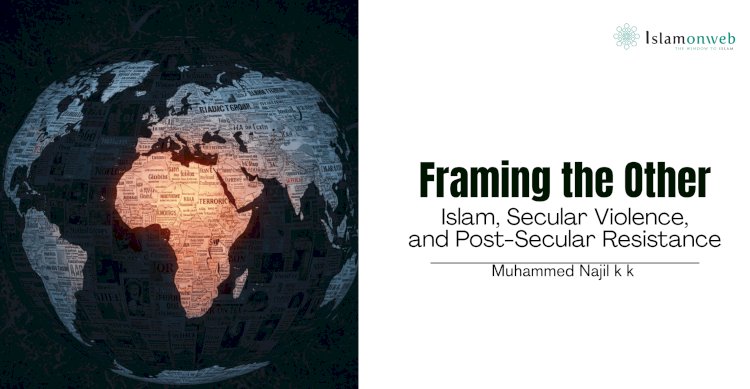


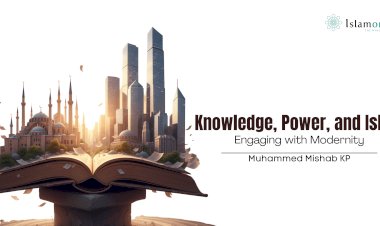
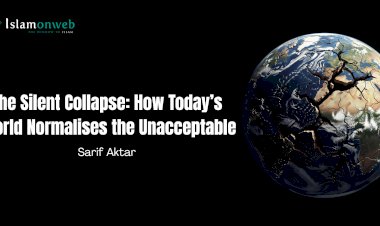
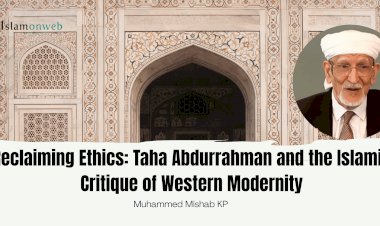
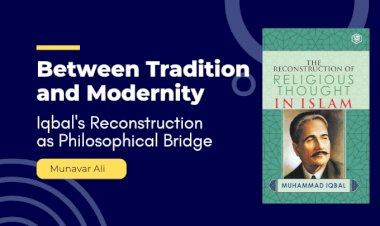
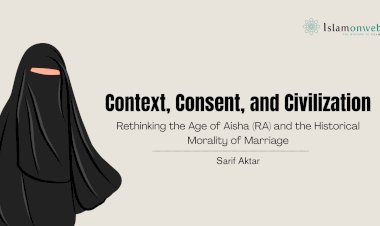
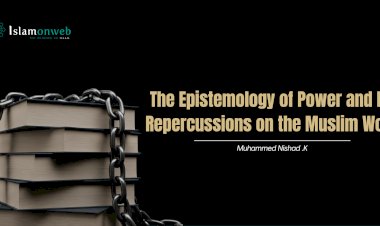














Leave A Comment